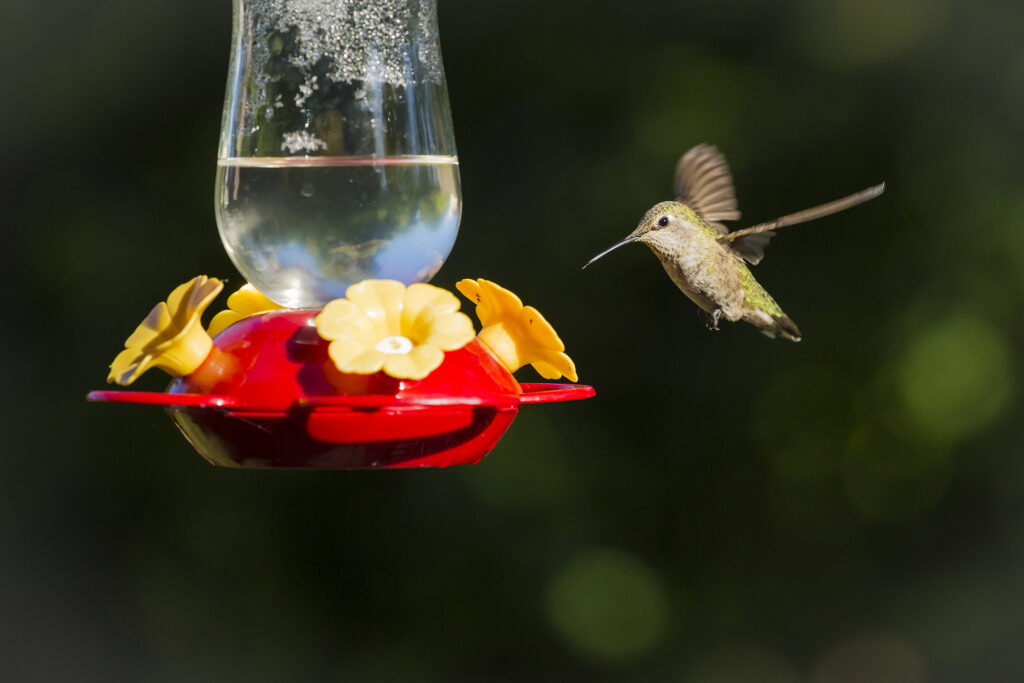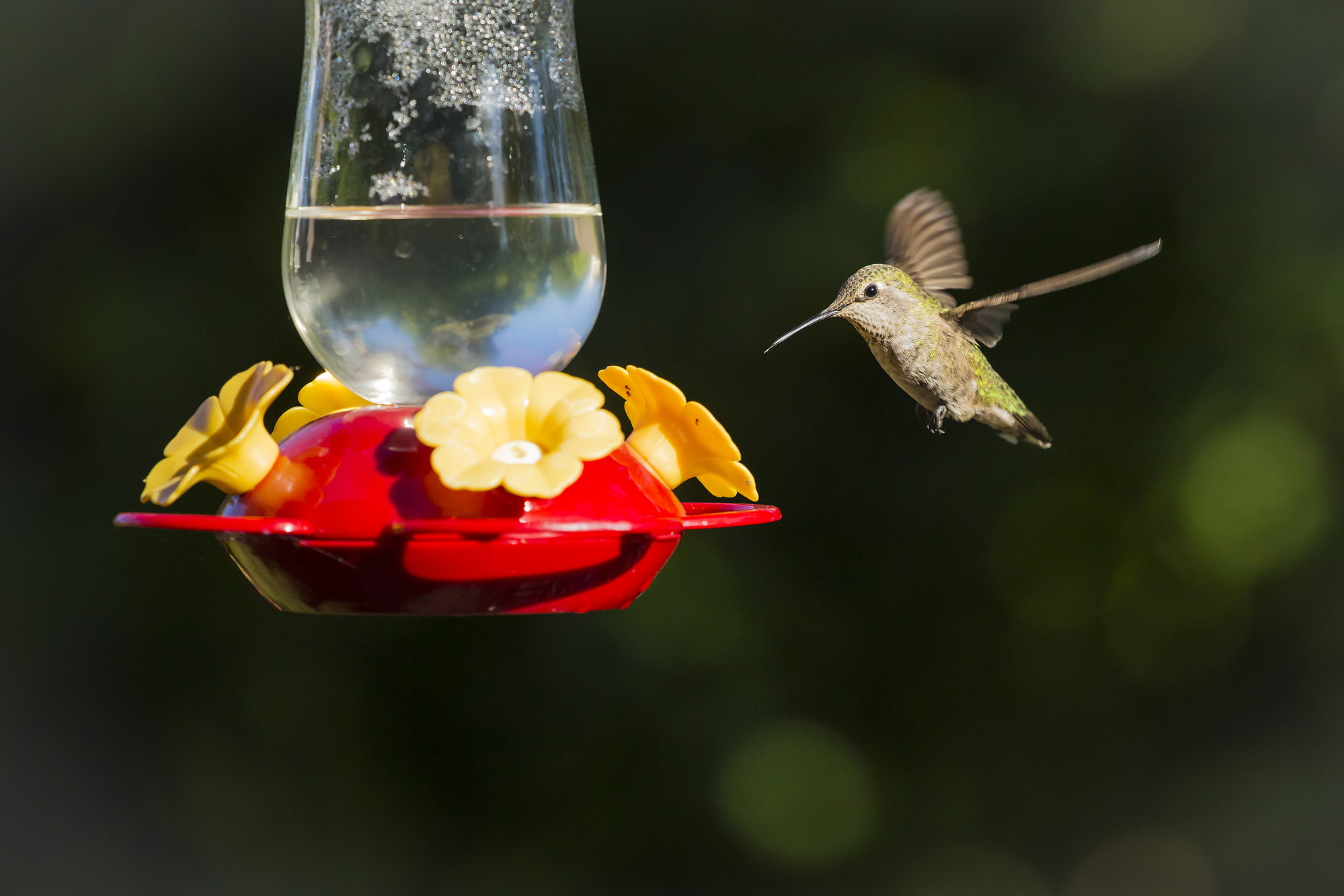Hummingbird feeders are a great way to attract hummingbirds to your yard or garden. But there are some things you should keep in mind to keep your local hummingbird population healthy. After all, you don’t want to create a situation where hummingbirds associate your backyard feeders with the nasty taste of spoiled, fermented nectar!
Does hummingbird nectar go bad?
This is a common question we hear from hummingbird watchers, especially those who are new to this part of the birding community.
The short answer is Yes! Hummingbird nectar can definitely go bad.
If you want to have more hummingbirds in your yard or garden, it is important to provide these tiny bird visitors with clean, safe food sources.
What are the Ingredients in Hummingbird Nectar?
Hummingbird nectar is easy to make. Sure, you can purchase some readymade nectar from the store, but with such simple ingredients, most people can make hummingbird food without going to the store to buy commercial nectar.
Here is a simple recipe to make a batch of hummingbird nectar to augment the natural flower nectar that they crave.
- One part white sugar to four parts water
- Boil the water if you are going to save some of it for later
- Dissolve the sugar in the water by stirring
- Fill your feeders when the sugar solution has cooled
- Store extra sugar water in the refrigerator for up to two weeks
How Does Hummingbird Nectar Go Bad?
Several things can cause hummingbird nectar to spoil. The biggest culprits are molds, bacteria, and fungi. You can often spot spoiled, moldy nectar with just a glance. The sugar water solution may turn cloudy, or you may notice mold or mildew growth at the feeder’s base.
If you notice stringy “floaters” or a milky discoloration in the feeder, a bad or sickeningly sweet smell or pervasive odor, or sticky feeding ports, you are looking at a hummingbird feeder that has “gone off.”
Another concern is the presence of dead bugs in the feeder. You would not want to eat from a dish full of dead insects, and neither do hummingbirds! If you notice bugs have died in the reservoir or base of the feeder, it’s time to dispose of the unclean hummingbird nectar, clean out the feeder reservoir, and add fresh nectar.
The natural breakdown of carbohydrates, combined with fermentation and exposure to insects and birds, leads to bad nectar.
How big of a problem is spoiled hummingbird food, anyway?
What Happens if a Hummingbird Drinks Rotten Nectar?
One of the first things that will happen if a hummingbird encounters rancid nectar at your feeder is that it will avoid your yard forever. You may think you are attracting hummingbirds to your garden by putting out feeders, but if you leave spoiled hummingbird nectar out for these delicate birds, you will end up repelling them!
That is obviously not what you want to do.
Dangers to Hummingbirds
Even if a hummingbird doesn’t consume enough spoiled nectar to become ill, it will likely consume enough to recognize that this feeder – and maybe even this whole yard – are not a safe, suitable place to get food.
More serious consequences include a version of hummingbird “drunkenness.” Fermentation is the process that turns raw sugar into alcohol, and little hummingbirds can experience intoxication from consuming fermented sugar water.
This can happen when the water is left out for just a few days without being replaced with fresh sugar water! Direct sunlight can cause fermentation to happen faster. This drunk-like behavior can cause hummingbirds to collide with objects, windows, and walls. It can also leave them vulnerable to attacks from faster, non-intoxicated predators like cats, bigger birds, snakes, and lizards.
Consuming rotten sugar water can also lead to illness or death.
How Long Does Hummingbird Nectar Last?
A thoughtful hummingbird fan will want to know the best way to keep their feeders clean and safe.
That leads to an important question: how long does nectar for hummingbirds last? In other words, when do you have to change the water and clean the feeder?
Hummingbird feeders are a big commitment. We recently published an article with step-by-step instructions for cleaning your feeders on a regular basis.
Hummingbird nectar has a longer shelf life under different circumstances. For example, it will last longer in cool weather than in hot weather. If you are leaving your feeders out for the last few migrating stragglers in October or November, you are less likely to see mold growth or fermentation.
However, if you are in the hot days of summer, you should be changing your feeder’s sugar water every two to three days to keep your hummingbirds safe and healthy!
Keep Your Hummingbirds Healthy
Being a responsible birder is all about protecting our treasured feathered friends. That certainly includes delightful hummingbirds, from the common Ruby-throated hummingbird to the rarest Calliope!
Think seriously about the commitment you need to make to keep your hummingbird nectar from going bad. If you are going to hang feeders, it is your responsibility to keep them clean and fresh!
If you are not up for that challenge, there are still other ways to attract hummingbirds to your yard! Look up what native plants in your area appeal to hummingbirds, and plant plenty of natural nectar sources in your garden or even in containers at your windows to keep your hungry birds happy.
When you take care of your hummingbirds, they will continue to bring you joy!


